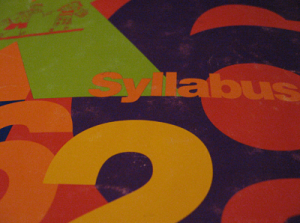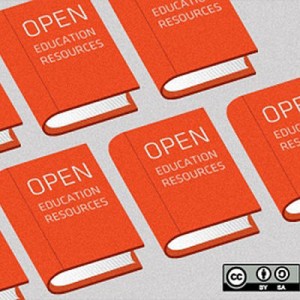Now that the fall semester is under way, it seems appropriate to reflect on some of the challenges instructors and students faced leading up to and in the first few weeks of classes. Here in the Libraries, we received many messages from instructors over the past several weeks asking for options for students to access course materials. We’re here to support the teaching and learning needs of instructors and students whenever possible, and have been happy to help when we can. Since the spring semester will arrive before we know it, considering alternatives to the most common challenges can reduce frustration for both instructors and students. Some of the problems include the following:
- Students studying remotely have no access to print materials on campus, including physical course reserves (even if they were on campus, health and safety measures currently preclude our ability to offer print reserves).
- Some instructors may require students to purchase out-of-print materials, which may be readily accessible at used booksellers in the U.S. but very difficult or impossible to obtain outside the U.S.
- Students can purchase print materials and have them shipped, but international shipping rates may be cost prohibitive.
- Some instructors turned to the Libraries’ Reserves staff for assistance, and if they needed only a small portion of a book to be digitized and shared on e-reserves, that was usually possible. However, course reserves are intended to be supplemental course readings, and we cannot digitize and share large portions of or an entire book via e-reserves if that book is still under copyright protection.
- Acquiring course materials, like everything else, takes longer than expected these days.
Budget extra time and please consider the following when drafting assignments and selecting materials for your Spring semester course:
Consider access and affordability of course materials, including Open Educational Resources (OERs) as alternatives to traditional textbooks. A good place to start is the Open Textbook Library, a collection of 790 OERs curated by the Open Education Network, based at the University of Minnesota. Another option is OpenStax at Rice University. You can also find more information on the Emory Scholarly Communication Office’s website on OER. If you have trouble finding OERs that will work for you, please contact your subject librarian or informationist (see below for contacts).
Utilize existing Emory e-book content and work with your subject librarian or informationist to access additional content, when available.
The libraries continue to expand access to an ever-growing number of individual e-books and e-book collections, most of which are discoverable through discoverE. While we strive to purchase multi-user e-book options for teaching and reserves, certain publisher restrictions may exist. For more information on our key e-book collections and assistance in locating, accessing, and working with e-books for your course, please carefully review our e-book guide. Contact your subject librarian or informationist to determine if we can acquire an acceptable e-book version of your required and supplementary texts, or if an existing text can meet class needs.
Keep in mind that textbooks are difficult for libraries to acquire in digital forms. Rental options, through the Barnes and Noble Bookstore, may be the best option for some students to access textbooks. Also, remember that Wiley, Oxford, Springer, Cambridge and Routledge all produce a variety of handbooks, companions, and surveys which can serve as course texts freely accessible to you and your students. Again, see our e-book guide for more details as to the availability and access to these collections. Consider OER options (see above) as well.
Free options such as Open Library may be useful, although these e-books are read-only, and not downloadable.
Leverage existing Emory video content through discoverE and check out the Emory streaming video content options. Work with your subject librarian or informationist to acquire new content. Acquiring streaming video can take significantly more time than purchasing a DVD, so please inquire as early as possible to determine if the Libraries can provide streaming access. You may want to also consider if film clips are a potential option in lieu of the full streaming access. Keep in mind that some distributors do not have institutional streaming access options, and may only provide individual rental streaming options. Note that Kanopy and Swank provide the quickest turnaround.
 When you are developing your research assignments and activities, remember to keep in mind not just your course structure, but also your students’ circumstances and access to research materials. Considering different scenarios and situations in advance can help you select materials and develop assignments that ensure all of your students can achieve your course objectives, whether they are residing in an Emory dorm or spending their semester overseas.
When you are developing your research assignments and activities, remember to keep in mind not just your course structure, but also your students’ circumstances and access to research materials. Considering different scenarios and situations in advance can help you select materials and develop assignments that ensure all of your students can achieve your course objectives, whether they are residing in an Emory dorm or spending their semester overseas.
Visit CFDE’s Online Teaching website for a wide range of content on designing and developing an online course, including crafting assignments and selecting course materials. The Flexible Teaching Toolkit and other resources include content from CFDE, the Emory Libraries, Academic Technology Services, and Emory College.
Additionally, see the Emory Libraries guide on Flexible Teaching, where you can find suggestions for research assignments and information on how to get support from the library for your class. Remember, subject librarians and informationists are always happy to meet with you to discuss options for course materials and assignments!
For assistance with open educational resources, ebooks, streaming videos, or research assignments, we are offering remote consultations with librarians and informationists.
- Contact subject librarians for College of Arts and Sciences and Laney Graduate School
- Contact informationists for Schools of Medicine, Nursing, and Public Health
- Contact law librarians for the Law School
- Contact business librarians for Goizueta School of Business
- Contact theology librarians for Candler School of Theology
- Contact oxford librarians for Oxford College
To incorporate rare books, manuscripts and archives into your class, contact Rose Library at rose [dot] library [at] emory [dot] edu.
For assistance with student learning accommodations, please contact Emory’s Department of Accessibility Services.
Instructors can get assistance with course reserves, including placing course readings on e-reserves which are integrated into your Canvas course, by contacting the appropriate reserves staff.
Course Reserves
- Woodruff Library, reserves [at] emory [dot] edu
- Business Library, gbsreserves [at] emory [dot] edu
- Law Library, lawcirc [at] emory [dot] edu
- Oxford College Library, ox-librarystaff [at] listserv [dot] cc [dot] emory [dot] edu
- Pitts Theology Library, theologyreserves [at] emory [dot] edu
- Health Sciences Library, medref [at] listserv [dot] cc [dot] emory [dot] edu
Related Links
Emory Libraries Course Reserves system and service
Commercial Textbooks Present Challenges in a Virtual Environment
Emory’s Streaming Video Content Options and Steaming Video Request Form


